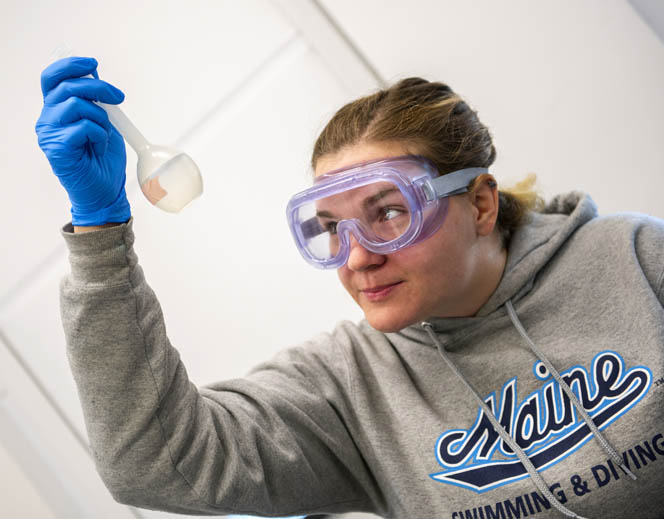
Adaptive Literacies
Educating for today’s society requires developing competencies outside traditional degree requirements. The curriculum and culture should reflect that we are moving into a new time with multiple ways of knowing and doing.
UMaine should expand education to include a focus on human capacities such as social and emotional skills; being able to engage with views and values that are different from one’s own; facing and responding to problems both on one’s own and in tandem with others; expanding one’s capacity for creativity; and developing solid and responsive analytic, critical thinking and communication skills. Developing global competency, social and cultural literacy as well as digital literacy will become increasingly important for UMaine students.
Focus Areas
- Social and Cultural Literacy
- Global Competency
- Technological Literacy
- Critical Thinking for Today
- Communication for Today’s World
Recommendations
Increase number and centrality of co-op programs and “real-world problems” courses that: 1) connect students to activities/responsibilities pertinent to their future jobs / life responsibilities, and 2) connect them to a network of mentors inside and beyond the university.
Expect and support universal design in instruction, campus resources, and university activities.
Prioritize development of skills that translate across disciplines and across life (especially in terms of writing, communicating with people professionally, making presentations, technological skills, financial literacy, etc.).
Support research and teaching approaches that involve students in activities that promote agency, curiosity, appropriate risk taking, willingness to respond to “failures” and road blocks, etc.
Develop a “learning compass” as a central part of a student’s education, which moves beyond simply having a major and includes developing human capacities such as social and emotional skills, being able to consider and engage with views and values that are different from one’s own, facing problems, expanding one’s capacity for creativity, developing analytic, critical thinking and communication skills, etc.
Universities have a key role to play in providing learners with the skillsets that will be important for the industry of tomorrow: complex reasoning, creativity, socio-emotional intelligence and sensory perception. These skills are increasingly acquired through practice and experience not in traditional classrooms.
Technology pushes you toward people who look like you, think like you, have similar interests. Universities need to foster values of global competency including understanding the connectedness of activities, and demonstrating socio-emotional skills. The best predictor of socio-emotional skills lies in whether students have met people from other countries, diverse backgrounds and cultures.
Change from a model of teaching and learning that makes students consumers of lots of pieces of knowledge to one that develops agency and the capacity to mobilize cognitive, emotional and social resources to have an impact on society.
Impact of automation on the jobs of the future — labor markets are polarizing, becoming highly skill-sensitive, and new forms of work are emerging. Universities must ensure graduates have the right skills for the new workplace. This is distinct from traditional degrees.
Be willing to challenge and let go of ways of teaching and learning that worked in the past. Be a thoughtful risk taking community. How radical is the university willing to be? If we are to survive, we need to be able to be innovative in real time. We also need to model this for our students.
Universities have a key role to play in providing learners with the skillsets that will be important for the industry of tomorrow: complex reasoning, creativity, socio-emotional intelligence and sensory perception. These skills are increasingly acquired through practice and experience not in traditional classrooms.
Change the way we train teachers (especially at the K–12 level given that these teachers will shape how young people develop). Focus should be on empowering teachers to teach with creativity, ability to be flexible and to adapt to changing needs of students and populations, modeling for students how to be a learner, an explorer, a community member, a problem solver.
Universities have an important role to play in promoting critical thinking, analytical skills and the ability to navigate a post-truth world. While access to technology has increased exponentially since 2000, digital literacy scores have remained static. PISA study of educational outcomes determined that only 47% of 15 year olds in PISA countries are able to distinguish fact from opinion.





